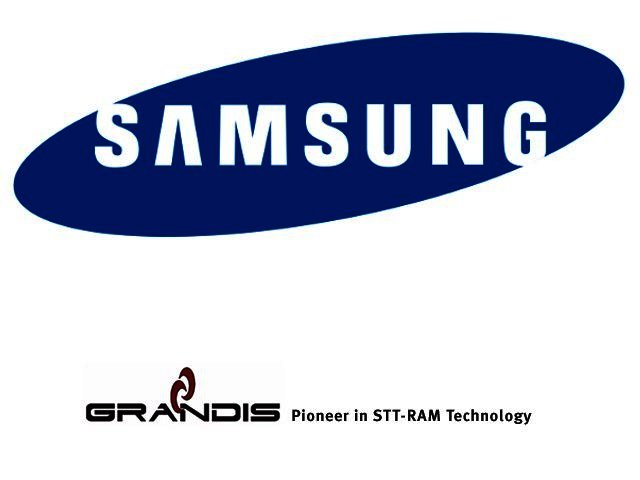PREVIOUS ARTICLENEXT ARTICLE
NEWS

Samsung acquires US memory manufacturer
By Hanleigh Daniels 3 August 2011 | Categories: news
Samsung Electronics has announced that it has acquired spin transfer torque random access memory (STT-RAM) manufacturer Grandis.
According to Grandis, STT-RAM combines the capacity as well as the cost benefits of DRAM (dynamic random-access memory), with the fast read and write performance of SRAM (static random-access memory) and the non-volatility of Flash. It also states that STT-RAM’s performance exceeds that of other prospective non-volatile memory technologies.
Grandis will be merged into Samsung’s research and development (R&D) operations, focusing on memory chip development, where new semiconductor materials and structures are reviewed for their long-term commercial value.
According to the South Korean tech giant, Grandis’ expertise in next-generation memory solutions as well as its strong technical capabilities will see it contributing to Samsung’s continued development of cutting-edge memory semiconductor technologies and become a key part of the company’s global R&D network.
Becoming effective as of late July, this acquisition includes the full scope of technology, assets and human resources under Grandis, with the financial transaction details not being disclosed.
Besides Grandis’ manufacturing and R&D assets, Samsung will also be gaining the company’s “unique, broad patent portfolio in STT-RAM, including key fundamental and practical implementation patents”. The American company licenses its IP (intellectual property) to technology companies that design, develop and manufacture a variety of products that incorporates stand-alone as well as embedded STT-RAM memory.
According to Grandis, STT-RAM combines the capacity as well as the cost benefits of DRAM (dynamic random-access memory), with the fast read and write performance of SRAM (static random-access memory) and the non-volatility of Flash. It also states that STT-RAM’s performance exceeds that of other prospective non-volatile memory technologies.
Grandis will be merged into Samsung’s research and development (R&D) operations, focusing on memory chip development, where new semiconductor materials and structures are reviewed for their long-term commercial value.
According to the South Korean tech giant, Grandis’ expertise in next-generation memory solutions as well as its strong technical capabilities will see it contributing to Samsung’s continued development of cutting-edge memory semiconductor technologies and become a key part of the company’s global R&D network.
Becoming effective as of late July, this acquisition includes the full scope of technology, assets and human resources under Grandis, with the financial transaction details not being disclosed.
Besides Grandis’ manufacturing and R&D assets, Samsung will also be gaining the company’s “unique, broad patent portfolio in STT-RAM, including key fundamental and practical implementation patents”. The American company licenses its IP (intellectual property) to technology companies that design, develop and manufacture a variety of products that incorporates stand-alone as well as embedded STT-RAM memory.
In related news, Samsung also recently launched its new hotly anticipated Galaxy Tab 10.1, at a function held in Sandton. According to market intelligence company ABI Research the Korean company shipped around 19 million smartphones (also responsible for 34% of Q2’s total Android shipments) in its most recent fiscal quarter, which means that is closing in on top smartphone maker Apple (sold 20.34 million iPhones).
USER COMMENTS
Most Read Articles
Read

Magazine Online
TechSmart.co.za is South Africa's leading magazine for tech product reviews, tech news, videos, tech specs and gadgets.
Start reading now >
Download latest issue
Have Your Say
What new tech or developments are you most anticipating this year?
New smartphone announcements (45 votes)
Technological breakthroughs (29 votes)
Launch of new consoles, or notebooks (14 votes)
Innovative Artificial Intelligence solutions (29 votes)
Biotechnology or medical advancements (24 votes)
Better business applications (160 votes)



